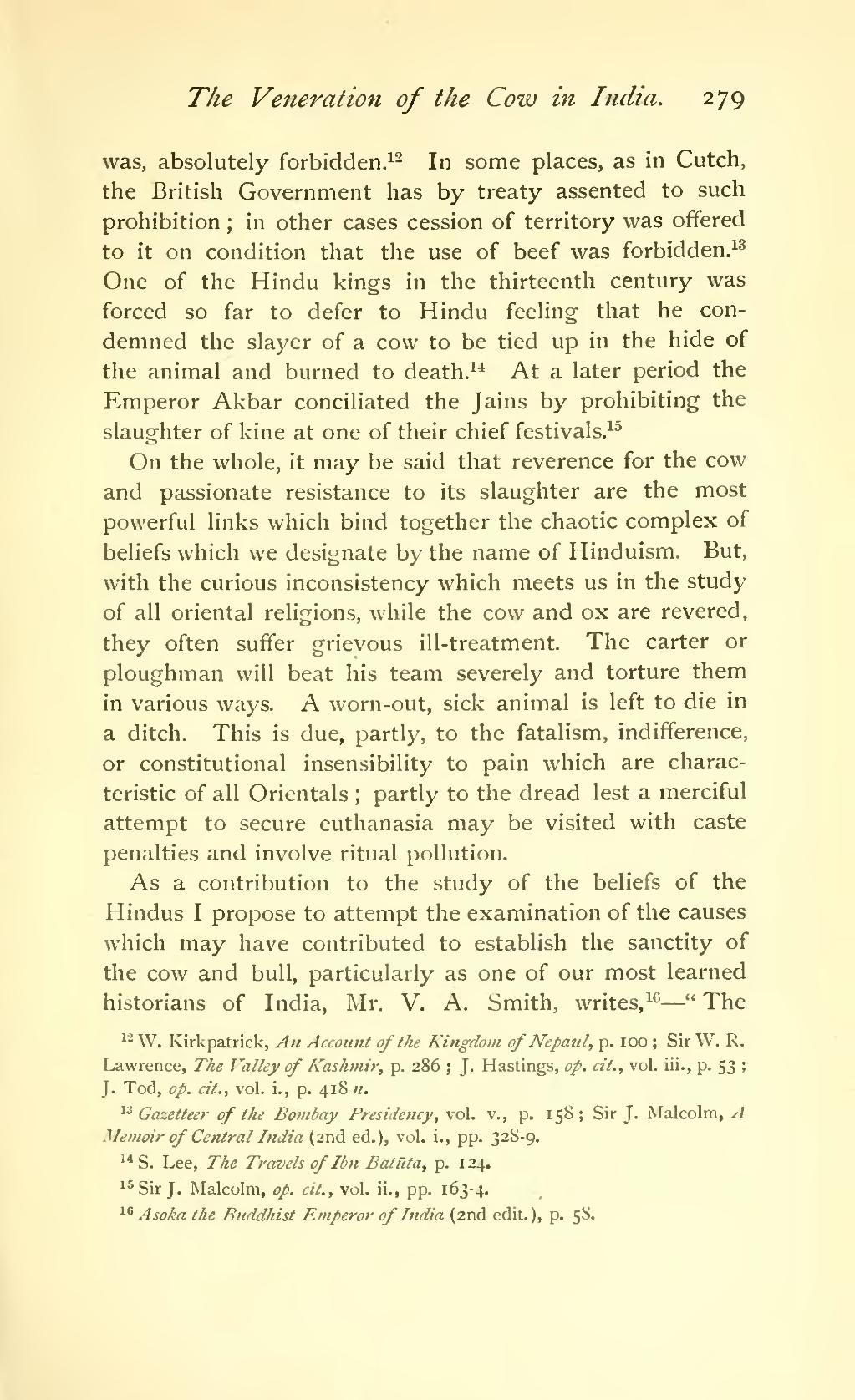The Veneration of the Cow in India. 279
was, absolutely forbidden.^- In some places, as in Cutch, the British Government has by treaty assented to such prohibition ; in other cases cession of territory was ofifered to it on condition that the use of beef was forbidden.^^ One of the Hindu kings in the thirteenth century was forced so far to defer to Hindu feeling that he con- demned the slayer of a cow to be tied up in the hide of the animal and burned to death.^* At a later period the Emperor Akbar conciliated the Jains by prohibiting the slaughter of kine at one of their chief festivals.^^
On the whole, it may be said that reverence for the cow and passionate resistance to its slaughter are the most powerful links which bind together the chaotic complex of beliefs which we designate by the name of Hinduism. But, with the curious inconsistency which meets us in the study of all oriental religions, while the cow and ox are revered, they often suffer grievous ill-treatment. The carter or ploughman will beat his team severely and torture them in various ways. A worn-out, sick animal is left to die in a ditch. This is due, partly, to the fatalism, indifference, or constitutional insensibility to pain which are charac- teristic of all Orientals ; partly to the dread lest a merciful attempt to secure euthanasia may be visited with caste penalties and involve ritual pollution.
As a contribution to the study of the beliefs of the Hindus I propose to attempt the examination of the causes which may have contributed to establish the sanctity of the cow and bull, particularly as one of our most learned historians of India, Mr. V. A. Smith, writes, ^*^ — " The
^- W. Kirkpatrick, An Account of the Kingdom of Nepaul, p. lOO ; Sir W. R. Lawrence, The Valley of Kashtnir, p. 286 ; J. Hastings, op. cit., vol. iii., p. 53 ; J. Tod, op. cit., vol. i., p. 418 «.
1^ Gazetteer of the Bombay Presidency, vol. v., p. 15S ; Sir J. Malcolm, A Memoir of Central India (2nd ed.), vol. i., pp. 328-9.
^* S. Lee, The Travels of Ibn Batata, p. 124.
i^Sir J. Malcolm, op. cit., vol. ii., pp. 163-4.
^^ Asoka the Bnddhist Emperor of India (2nd edit.), p. 58.
